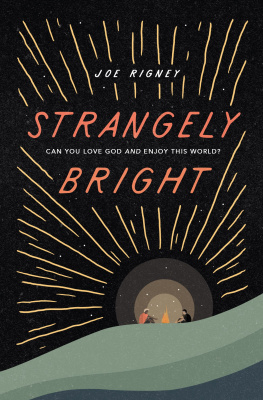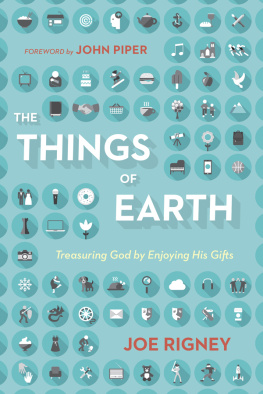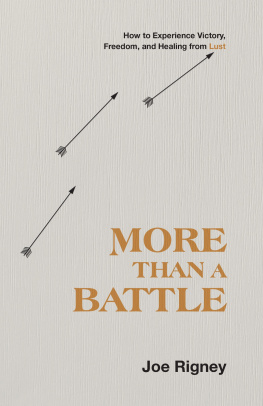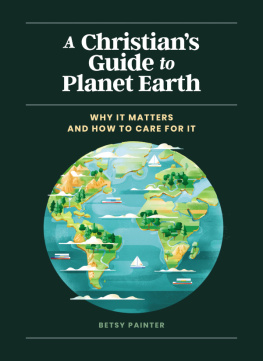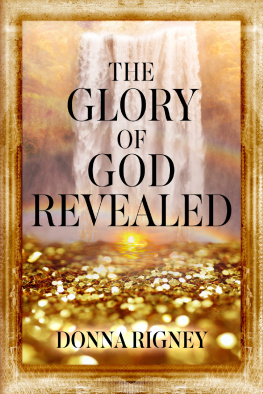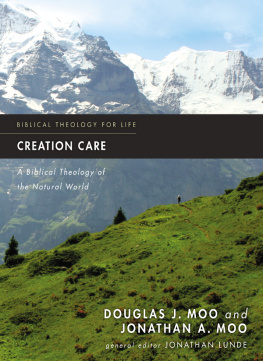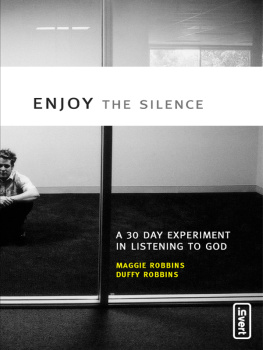Table of Contents
Landmarks
As we come to the end of this book, Im mindful of its shortcomings. So many subjects left untreated. So many questions left unanswered. If youd like to explore this topic further, you might want to read the larger book I mentioned earlier, The Things of Earth: Treasuring God by Enjoying His Gifts , which goes into much greater detail. Its about three times the size of this book and lays a deeper theological foundation, explores more biblical passages, answers a wider variety of questions, and offers more practical guidance and advice for living out this vision of the Christian life.
For now, I simply want to close with a basic summary of this book and one simple piece of advice. The living God made the world so that we could know him. He reveals himself to us in creation and in Scripture, in his world and in his word. Everything in creation declares his glory. Made things make his invisible attributes visible. All of Gods gifts are invitationsthey display who he is and invite us to know him and delight in him. They are the beams; he is the sun. They are the streams; he is the fountain. So our calling is simple: to enjoy God in everything and everything in God, knowing that he is greater and more satisfying than any and all of his gifts. Jesus is better. At a practical level, this means that we anchor ourselves in his word and orient ourselves in worship and then carry the divine presence with us into our daily lives. As made things that make things, we too ought to display the glory of God and invite people to know him and enjoy him. We do this by gratefully receiving all that he richly provides and by joyfully sacrificing and sharing all that we have received. Even as we receive the gifts, we deny ourselves daily and gladly spend our wealth and our time and ourselves in loving others so that they too can be supremely happy in God.
Thats the summary. Now heres the advice. Begin where you are. Whatever earthly things are present to you now, start with them. Whether its warm sunshine or a cool spring rain. Whether its eating enchiladas or sipping lemonade. Whether its planning a project for work or having a conversation with your spouse. Whether its working in the yard or wrestling with your kids. Whatever good and perfect gifts are coming down to you now from the Father of lights, begin with them. Receive them with gratitude. Savor them with gladness. Study them with delight. Share them with others. And refuse to stop with the gifts. Follow them back to the giver. See them as declarations of his glory. Know them as images of divine things. And then turn your eyes upon Jesus . Look full in his wonderful face. And the things of earth will grow strangely bright , in the light of his glory and grace.
Psalm 19 begins with one of the most famous verses in the Bible: The heavens declare the glory of God. The first half of the psalm celebrates Gods glory in naturein the heavens (v. 1), in the suns course across the sky (vv. 4, 6), in the similarities between the sun and a warrior and a bridegroom (v. 5). This revelation has gone out to the entire world so that there is no place where Gods revelation is not heard (vv. 24). In other words, the psalm begins with a celebration of what theologians call general revelation. General revelation includes all the ways that God reveals himself in creationin the ordinary course of nature and the general course of history. In other words, its not just the heavens that declare the glory of God. Everything that God has made declares the glory of God. The apostle Paul tells us that Gods invisible attributes, namely, his eternal power and divine nature, have been clearly perceived, ever since the creation of the world, in the things that have been made (Rom. 1:20). In other words, made things make invisible attributes visible. Created things make eternal things perceivable. Gods own power and righteousness and beauty and wisdom and mercy are invisible attributes. We cant see them directly. But when we see a tornado tear across the plains, we see his power. When we stand on a giant mountain, we feel the firmness and stability of his righteousness. When we watch the sun set over the Pacific Ocean, we see his beauty. When we witness the magnificent intricacy of the food chaindeer eating grass and then being eaten by lionswe see his inscrutable wisdom and mercy over all that he has made. Made things make invisible attributes visible.
Thats what we mean by general revelation, and by its nature, it is pervasive and constant. Its accessible to all men everywhere. There is no speech, nor are there words, whose voice is not heard (Ps. By this, he meant that everything in creation is communication from God about God. God speaks to us everywhere and in everything.
Earthly Categories for Spiritual Things
General revelation works both directly and indirectly. It works directly by creating categories in our minds and hearts for knowing God. This is direct because we move straight from the made thing to God himself. How do the heavens declare the glory of God? Through their size and majesty. The vastness of the heavens points to the greatness of God. Or the beauty of a sunset gives us a visual picture of the beauty and holiness of God. Or the suns perpetual and constant shining images Gods constant and everlasting goodness. In each case, we move straight from the made thing to God himself. Our experience of the world gives us categories for knowing God and his word.
And not just God himself. General revelation gives us categories for knowing many aspects of the spiritual life. Consider Psalm 1.
Blessed is the man
who walks not in the counsel of the wicked,
nor stands in the way of sinners,
nor sits in the seat of scoffers;
but his delight is in the law of the L ord ,
and on his law he meditates day and night.
He is like a tree
planted by streams of water
that yields its fruit in its season,
and its leaf does not wither.
In all that he does, he prospers.
The wicked are not so,
but are like chaff that the wind drives away. (Ps. 1:14 )
In this psalm, fruitful trees are audiovisual aids to help us understand the blessed and righteous man, just as tumbleweeds are audiovisual aids to help us understand the wicked. Men are like trees, and different trees help us understand different types of men. This is why God made the world he did and gave us eyes and ears and a nose and a mouth and skin. Our senses are designed to take in the world, and then our minds and hearts are designed to connect our experience of the natural world to the spiritual world and the God who governs both.
In the course of writing this book, I found the perfect opportunity to illustrate the way that our experiential knowledge of the world through general revelation helps us to understand the Bible and thus to know God more deeply. Every year, Bethlehem College & Seminary hosts a pastors conference in Minneapolis. In January . And every year a few thousand pastors and church leaders journey to the land of ice and snow in order to be encouraged through worship, teaching, and fellowship. For our brethren from the South, we know that the trip is almost a rite of passage. They get to return home and regale their congregations with stories of their exploits in the frozen tundra. The snowdrifts were up to my waist. My eyes almost froze shut. I nearly died attempting to cross the street to scavenge for food.
In January of 2019, however, the cold went to another level. The wind chill dropped down to 45 degrees. Even for native Minnesotans, thats cold. That year I told the pastors assembled there:
Youre going to go home and try to explain to your people how cold it was here. You might try to use math. Youll tell them, You know the difference between 80 degrees and 40 degrees? It was like that temperature difference over again, and then over again80 to 40 to 0 to -40. And they might get some idea of the cold. But you know that they wont really get it. You, on the other handyou walked outside with your little Target beanie and windbreaker. Your nose hairs turned to ice in under five seconds. You lost feeling in your fingers before you made it from your car to the conference center in the parking garage . And because you experienced all of that, Psalm 147 now means more to you:

